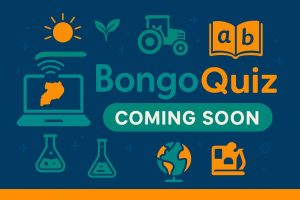Mastering how to answer interview questions can help you land your dream job. Learn how to talk about yourself, handle mistakes like forgetting a lesson plan, and confidently respond to the 10 most common interview questions with sample answers.
Introduction
Interviews can be nerve-wracking, especially when you’re unsure how to answer certain questions. Whether you’re applying for a teaching job or any other professional role, how you respond to interview questions can determine your chances of getting hired.
One of the first and most important questions is:
“Tell us about yourself.”
Another situation might test your ability to solve problems under pressure:
“Suppose you forgot to carry your lesson plan to class. What would you do?”
This blog is here to help you prepare smart, confident, and honest answers, while offering sample responses to the 10 most commonly asked interview questions.
How to Talk About Yourself in an Interview
The “Tell us about yourself” question is your first chance to make an impression. But many people either say too much or too little. Here’s how to structure a winning answer:
✅ 1. Start with your professional background
Talk briefly about your current or previous role, years of experience, and key achievements.
Example:
“I’m a secondary school teacher with over six years of experience teaching English and Literature in both rural and urban school settings.”
✅ 2. Highlight your skills
Pick two or three key strengths relevant to the job.
Example:
“I’m skilled in lesson planning, student-centered teaching, and classroom management. I also have a strong background in educational technology.”
✅ 3. End with what you’re looking for
Mention how your goals align with the organization.
Example:
“I’m excited to join a school that values innovation and inclusive education, where I can contribute to both student growth and the professional development of my peers.”
📄 What If You Forgot to Take a Lesson Plan to Class?
This is a situational question used to test your problem-solving ability and professional composure.
Sample Answer:
“If I realized I had forgotten my lesson plan, I would remain calm and immediately draw on my preparation and subject knowledge. I’d review the core objectives I had planned and deliver the lesson interactively using the blackboard and student discussions. After class, I’d ensure I reflect on the situation and come up with strategies—like double-checking my teaching materials every morning—to avoid such mistakes in the future.”
Tips:
- Be honest but show responsibility.
- Focus on your ability to adapt and think critically.
- Avoid blaming others or showing panic.
📋 10 Common Interview Questions and How to Answer Them
Here are 10 popular questions (especially in teaching, education, and civil service interviews) along with sample answers:
1. Why do you want this job?
“I’m passionate about empowering learners and believe your institution provides the best platform for inclusive and innovative education. I admire your school’s values and the emphasis on community impact.”
2. What are your strengths?
“I’m organized, dependable, and communicate well with students and colleagues. I also adapt quickly to new teaching methods and technology.”
3. What is your biggest weakness?
“I tend to be a perfectionist, which can slow me down. But I’ve learned to balance quality with time management by prioritizing and using tools like teaching checklists.”
4. Why should we hire you?
“I bring the right combination of experience, creativity, and passion for student growth. I’ve consistently improved student performance and can introduce engaging teaching methods that align with your curriculum goals.”
5. How do you manage classroom discipline?
“I set clear expectations from day one and maintain consistency. I also use positive reinforcement, communicate with parents, and tailor strategies based on student needs.”
6. How do you handle pressure?
“I stay calm and focus on the task. During tight exam schedules, I use to-do lists, plan ahead, and seek support from colleagues to ensure all lessons are delivered effectively.”
7. How do you deal with a student who isn’t performing well?
“I identify the root cause through assessments and one-on-one discussions. I then adjust my teaching methods, provide extra support, and involve parents or counselors when necessary.”
8. Describe a successful lesson you’ve taught.
“In a lesson on environmental conservation, I divided the class into groups to create posters and presentations. The students were engaged, understood the topic deeply, and even initiated a tree-planting project afterward.”
9. Where do you see yourself in 5 years?
“I hope to be in a leadership role where I can mentor other teachers, contribute to curriculum design, and support school-wide improvement programs.”
10. Do you have any questions for us?
“Yes, could you share more about the school’s mentorship programs for new teachers?”
This shows interest and initiative!
💡 Bonus Tips for Acing Your Interview
- Research the school or organization before attending the interview.
- Dress professionally and arrive early.
- Maintain eye contact and a confident posture.
- Be polite and thank the panel at the end.
Conclusion
Mastering how to answer interview questions takes preparation and self-awareness. By understanding common questions like “Tell us about yourself,” and handling situational scenarios such as forgetting your lesson plan, you position yourself as a confident and capable professional.
Remember, interviews are not just about testing your knowledge—they’re about assessing your character, adaptability, and fit within the organization. So be honest, stay calm, and let your passion for the role shine through.
Frequently Asked Questions (FAQs)
1. What do I say when asked to talk about myself?
Keep it brief and professional. Mention your background, strengths, and career goals that align with the job.
2. How do I handle tricky questions in interviews?
Stay calm, be honest, and demonstrate problem-solving skills. Think before you respond.
3. Can I mention personal experiences in my answers?
Yes, if they are relevant to the role and show your character or experience.
4. What’s the best way to prepare for an interview?
Practice answering common questions, research the institution, and rehearse with a friend or mentor.
5. How do I follow up after the interview?
Send a thank-you email within 24–48 hours expressing appreciation for the opportunity.


Leave a Reply